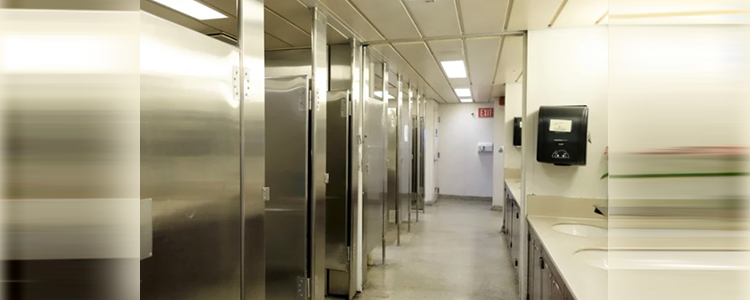Statement by Art Lange, Candidate for Orcas Public Hospital District, Position #3
Candidate for Public Hospital District Commissioner
I) What I Stand for If Elected:
1) My goal as your commissioner will be to enable all the members of our community to have access to high quality primary and urgent care including after-hours care in a financially sustainable and predictable manner now and for generations to come.
2) I will take the responsibility of spending the tax dollars of members of our community very seriously and I will do everything I can to spend it wisely and efficiently to achieve the goal of high quality primary and urgent care for all.
3) I support the position that our PHD will assist all the existing primary/urgent care practices to enable all the members of our community to benefit.
4) As a commissioner I pledge to conduct PHD business in an open and transparent manner and to enable the members of our community to participate in the process of conducting PHD business.
5) While it is inefficient to have more than one overhead on our island for the delivery of primary/urgent care, the realities are such that that is the case at the present time. I support assisting all the existing primary/urgent care practices with the ultimate goal of consolidating them into one joint practice in whatever form that might be.
6) By law, it is required that voters choose to create a Public Hospital District and elect the Commissioners at the same time. It is then, by law, the responsibility of the Commissioners to determine the amount of the levy to fund the needs of the district. The cap on that funding is $.75 per $1000 of property value. While several of the variables that would determine what the levy would be cannot be exactly determined at this time (number of practices seeking assistance, how much they will be given, what the administrative costs will be, etc.), I am very confident that the cap is not necessary to achieve our goal of the provision of quality primary and urgent care for all the members of our community in a financially sustainable manner. The Coalition for Orcas Healthcare has suggested that the levy might be between $.55 and $.60 per $1000 which seems reasonable given what is known at this time but that number needs to be determined after very careful scrutiny by the commissioners.
7) Commissioners can negotiate with recipients of PHD funds regarding such issues as: a) what services will be provided including after-hours care and assistance to patients who cannot afford their care, b) the metrics needed to measure patient satisfaction and evidence of cost effectiveness and quality of service.
8) While it is difficult to measure precisely, it is likely that having high quality primary/urgent care (or more likely, the absence of) has an impact on the number of prospective buyers of homes and, therefore, property values.
9) Even business generated by tourism could be effected if visitors have negative medical experiences.
10) If, after primary and urgent care support is achieved, the members of our community could be surveyed to clearly identify other services a majority would like to see supported by the PHD and at what amount they would be willing to increase the levy.
11) It is very possible that an Orcas PHD could share administrative costs with Lopez PHD.
II) My Credentials:
1) Owned a management consulting company for 35 years. In addition to working with hundreds of large corporations, I have also worked with dozens of hospitals, healthcare organizations, county government Boards, school boards and special districts doing strategic and operational planning, team building and leadership skills training.
2) I have taught leadership in the Executive Management Programs at UCLA, UC-Riverside, UC-Irvine and University of Washington.
3) Director of the Psychological Services Clinic (with staff of 14) at UC-Irvine.
4) Retired Licensed Psychologist in private practice; Diplomate of American Board of Professional Psychology; author of three books on effective communication.
5) As a Member of Our Community:
a) Currently on Finance Committee of Orcas Island Community Foundation
b) San Juan County Human Services Advisory Board Member; (which advises on mental health expenditure of 1/10th of 1% sales tax monies)
c) Member of the Coalition for Orcas Healthcare, the citizen’s group that supports the passage of the PHD.
d) Previously wrote and received two OICF grants for all three medical practices for assistance with patients who cannot afford their medical care.
e) Previously worked for 9 years as a volunteer consultant to three Orcas Fire and Rescue Chiefs working on strategic planning, the passage of the levy and operational improvements.
f) Several years ago, served 8 years on Orcas Medical Foundation Board:
a) managed the financial assistance fund for uninsured patients who could not afford the cost of their care; b) participated in the process to bring Island Hospital to the Orcas Medical Center; c) participated in the process of bringing Dr. Camille Fleming to the Orcas Medical Center.
g) Served 6 years on the Board of Orcas Center
h) Briefly, volunteer advisor to Coffelt Farm Stewards
6) If you have questions or thoughts you would like to share, please contact me at 376 8005 or artlange@rockisland.com or go to my website: www.artlange.net.
7) The members of our community have a long history of stepping up and dealing with important community needs and I am confident that we will do so when it comes to our health care needs.
III) Why Do We Need a Public Hospital District?
1) My goal for a Public Hospital District on Orcas is to ensure high quality primary and urgent care (including after-hours urgent care) for all the members of our community in a financially sustainable and predictable manner now and for generations to come.
2) Because of very low Medicare, Medicaid and other insurance reimbursement rates for rural primary and urgent care and the continuously increasing mandated costs of care, rural practices nationally have to receive some sort of financial assistance beyond the revenue generated by delivery of service.
3) Historically on Orcas generous donors have been covering these shortfalls by providing hundreds of thousands of dollars annually. However, philanthropic support is not a sustainable or predictable long-term solution because: a) major donors (particularly aging donors) move off-island or pass away, c) donor priorities change, c) philanthropy is significantly affected by economic downturns and d) the fundraisers, themselves, turn over frequently and some are more successful than others. Having access on our island to primary/urgent care when needed is too important to us all to leave it to that kind of uncertainty.
4) We are all at risk of not having any primary/urgent care provider on Orcas. The two existing practices have both stated that they cannot continue to exist without financial assistance and it is very unlikely that any new primary/urgent care provider would come here without some guarantee of assistance.
5) Having access to primary and urgent care (including after-hours urgent care) is vital to the health of all the members of our community. Healthy children develop better both physically and mentally, seniors can stay here longer, we all can then get primary and/or urgent care without going off-island.
6) Primary/urgent care is very much like Fire, Sheriff and EMS services. Some people may use the services more than others in any given year but we all want to have access to them when and if we do need them, especially urgent care.
7) We, as a community, need to decide how we are going to address our primary/urgent care needs. Lopez Island and San Juan Island have created Public Hospital Districts (PHD’s) to address their medical needs. There are 58 PHD’s in Washington state alone. We are not seeking to have a hospital on Orcas, just to support primary/urgent care.
8) Two other property tax increases will be levied soon, one to comply statewide with the Judge McCleary decision regarding funding for education and the other a local Orcas School District bond and levy. Plus, local assessed valuations have increased. Taken all together they amount to a significant increase in taxes.
9) In the context of these tax increases we, as a community, still have to decide if we want to have access to primary/urgent care on Orcas. If the PHD does not pass, the UW-Medicine Clinic will close. OFHC representatives have publicly stated that they support the PHD and that they need such support to continue to operate. Without a PHD our community could very easily be without any primary/urgent care practices. Given the financial challenges, it would be very unlikely that other primary/urgent care providers would be inclined to open a practice on Orcas without some guarantee of assistance.
**If you are reading theOrcasonian for free, thank your fellow islanders. If you would like to support theOrcasonian CLICK HERE to set your modestly-priced, voluntary subscription. Otherwise, no worries; we’re happy to share with you.**







